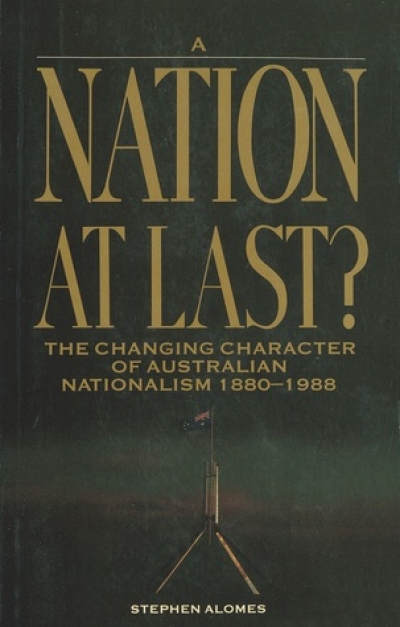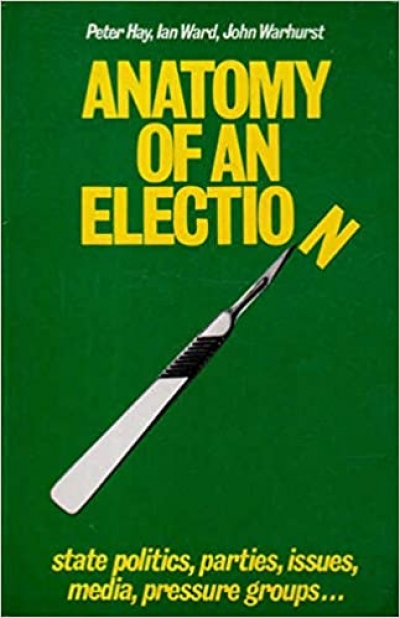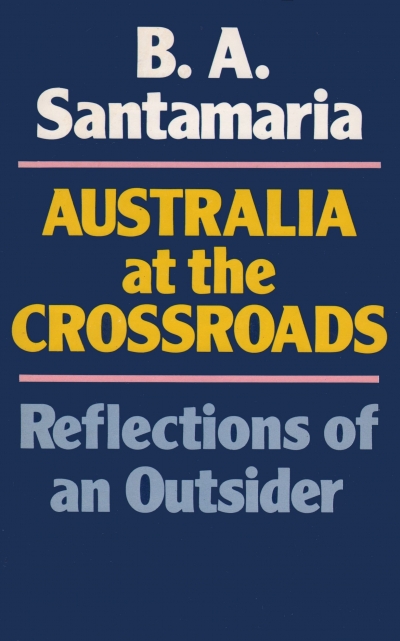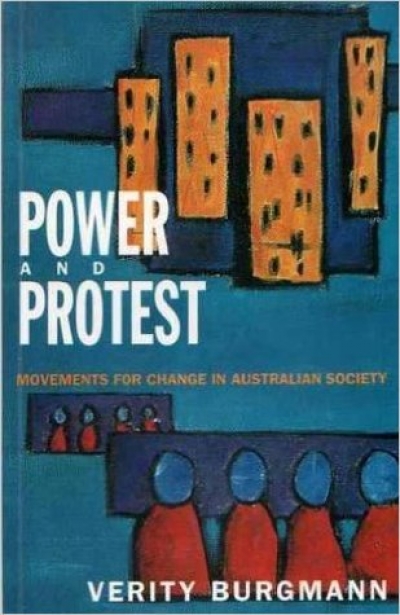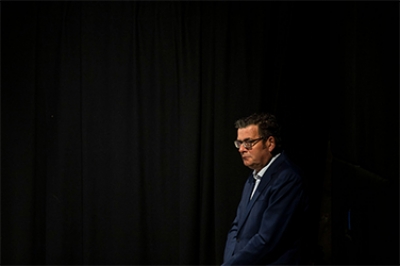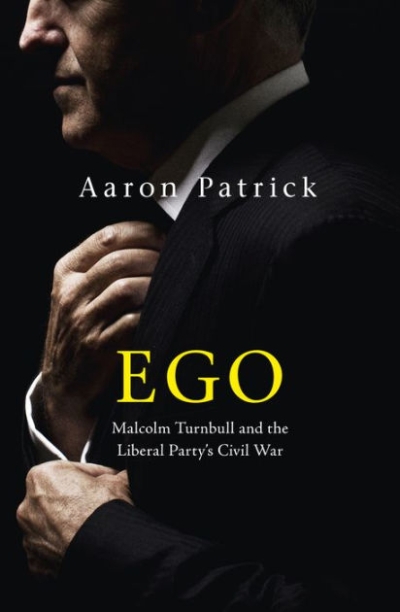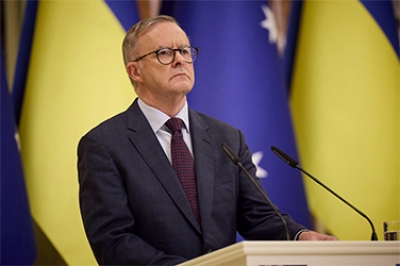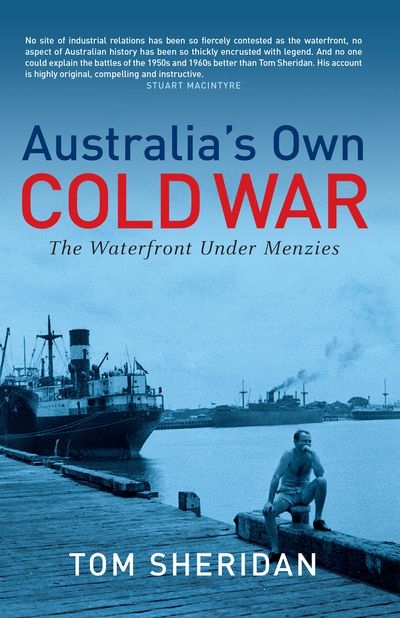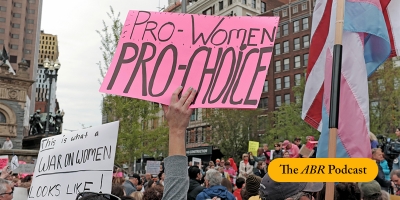Australian Politics
A Nation At Last?: The changing character of Australian nationalism 1880–1988 by Stephen Alomes
The dilemma for confessedly nationalist intellectuals has always been what to do about their strange bed-fellows, the scoundrels who have sought a last refuge under the same patriotic blanket. Generally they have distanced themselves with glib distinctions between good and bad nationalisms, left and right nationalisms, radical and conservative and larrikin and respectable nationalisms. Often, too, they looked back – radicals to the 1890s, conservatives to the Great War – and contrasted an idealised past nationalism with contemporary selfishness. How often does discussion of Australian nationalism not get past the 1890s?
... (read more)Anatomy of an Election edited by P.R. Hay, I. Ward, and John Warhurst
For many years there has been little study of politics and elections at the state level in Australia. It seems to have been assumed that only national politics is really important, and that voters made very little distinction between state and federal politics. Thus, the conventional wisdom on electoral behavior had it that voters reacted fairly predictably on the basis of their early political socialization and in response to a set of vague images of the parties which was generated largely at the national level and changed only slowly.
... (read more)Australia at the Crossroads: Reflections of an outsider by B. A. Santamaria
B.A. Santamaria is given to self-dramatization. His autobiography (1981) was subtitled Against the tide but he was not metaphorically explicit as to whether the tide was going out or coming in. For myself I do not want to think of Santamaria behaving with Canute-like megalomania; I prefer to envisage him backstroking towards shore with a rear-vision snorkel, spouting against the undertow of inevitable social change, and praying for some apocalyptic dumper to preserve him from the future agoraphobic shock of an ever-widening ocean.
... (read more)Power and Protest: Movements for change in Australian society by Verity Burgmann
Verity Burgmann’s Power and Protest is an evocation of the major social movements that have arisen and thrived in Australia since the late 1960s, the black, women’s, lesbian and gay, peace and green movements. The writer is a well-known historian of Australian radicalism as well as a political scientist, and in combining history and politics she joins other social scientists such as Terry Irving, Judith Brett, James Walter, Murray Goot – an interesting tradition. In each chapter she offers an evocation of the various movements, outlining origins, developments, aspects, divisions, conflicts, difficulties, dilemmas, successes, achievements, as well as the opposition and resistance to these movements in the wider society. Burgmann writes with ease and energy, often with enjoyable irony and sarcasm. I liked her reference to Kate Millett’s Sexual Politics (1970) as ‘ovarious’. Power and Protest is entertaining as well as clear, and will surely prove indispensable for teaching.
... (read more)For a reform politician, these three books should be compulsory reading. They are not, for such a reader, heartening. But they do ‘serve in many respects to discover, to confute, to forewarn, and to illustrate’.
Brian Dale’s Ascent to Power, very much less than fair to Neville Wran, is an unintended expose of the nature of political journalism in this country and its practitioners.
... (read more)It was in the wake of the landslide re-election of Daniel Andrews’s Labor government in November 2018 that the former Coalition prime minister, John Howard, christened Victoria ‘the Massachusetts of Australia’. Coming from Howard, this characterisation of Victoria was not meant as a compliment. Rather, it seemed designed as a consolation message for the local Liberal Party. He was providing them with an alibi for their lengthening record of under-performance in the state. Victoria, Howard seemed to be saying, was simply impervious to the party’s conservative values.
... (read more)Ego: Malcolm Turnbull and the Liberal Party’s civil war by Aaron Patrick
When out of government, the Coalition parties resemble nothing so much as an ill-disciplined horde, by turns bombastic and bilious, riven with discord, forever tearing down putative leaders and searching for scapegoats to explain their losses and lot. The blame almost always falls on the departed. In the 1980s, it was Malcolm Fraser’s unwillingness to undertake proper economic reform that they most decried; after 2007, it was John Howard’s refusal to relinquish the leadership to Peter Costello. In Aaron Patrick’s new book, Ego, the blame is laid not at the feet of Scott Morrison, as might have been expected, but at those of Malcolm Turnbull.
... (read more)Before the May 2022 federal election, Anthony Albanese, partly to silence critics of his ‘small target’ campaign and partly to manage wider expectations, proposed to lead a Labor government that under-promised and over-delivered. A deliberately thin ‘look-at-them’ election campaign was designed to keep the focus on a tired and compromised Coalition government, rather than following Labor’s usual approach of fighting for voters’ attention with big new ideas. For a social democratic party which exists for reform, it was an unorthodox strategy and one not without risks. The political capital from any ‘over-delivery’ might well accumulate for a ‘re-election’ bid in 2025, but the thinness of Labor’s 2022 enticements would be obvious.
... (read more)Australia's Own Cold War: The waterfront under Menzies by Tom Sheridan
The leaked draft judgment in the case of Dobbs v. Jackson Women’s Health Organization, in which US Supreme Court Justice Samuel Alito proposed overturning the precedent set by Roe v. Wade, has returned abortion rights to the headlines. In this week’s episode of The ABR Podcast, Linda Atkins reads her essay, ‘Shouting Abortion’, which sets women’s right to terminations within the broader context of intergenerational poverty and the class lines of the medical profession ...
... (read more)
